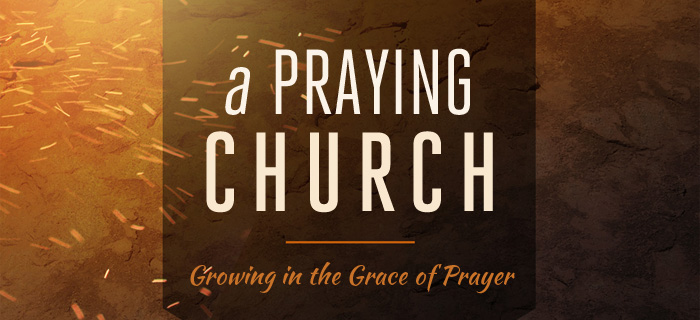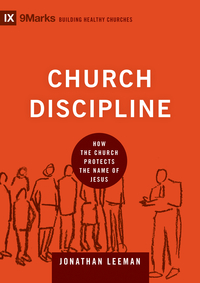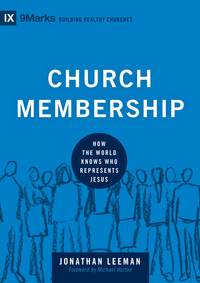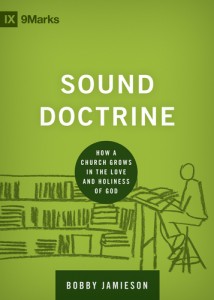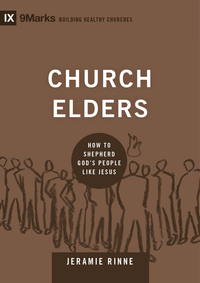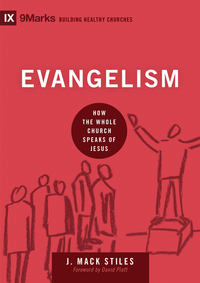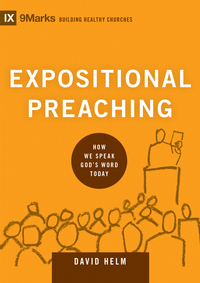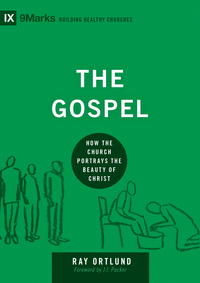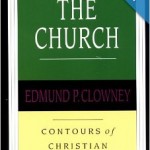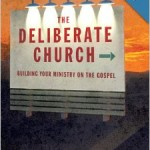Few things stir my creativity in and vision for ministry as seeing how other faithful churches go about the work of ministry.
One area of perennial interest to me is in the area of training elders and deacons. So much of a church’s longevity in sound doctrine, holiness, and love is wrapped up in her leaders’ growth and perseverance in those three pivot points of biblical leadership. I am always challenged by how others church go about the process.
For this reason, I have written in the past (here, here, and here) about elder training at IDC. I hope it may be of some help in honing your own church’s process.
Today, and over the next few months, I want to invite you in to our deacon training process.
BE PATIENTLY URGENT
When IDC was planted at the beginning of 2013 the one thing I was most eager to do was train and appoint elders. The Spirit, through Titus 1:5, had placed a driving ambition to see qualified men installed as shepherds at our little church. At the same time, the Spirit, through 1 Timothy 5:22, said that I ought not be too quick to ordain men to the office. So I worked within a paradox that I’ve come to love: the paradox of being patiently urgent. That’s my way of synthesizing Paul’s instruction to Titus and Timothy.
After sixteen months of urgent patience our congregation affirmed two men as elders. Right after their installation I felt another spike of eagerness pointed towards training and affirming deacons.
APPROACHING DEACON CANDIDATES
So we immediately set about the work of identifying men currently doing the work of a deacon in our church. After about six weeks of discussion and prayer we settled on a group of men we wanted to approach about going through deacon training. We found these men to not only be qualified for the office, but they also were consistently serving over and beyond normal obedience in church ministry.
The first order of business was to discuss with the respective man’s wife whether or not there was anything in his life that would give her pause in relation to him serving in the office. This step clearly isn’t mandated in Scripture, but we think it a wise initial step for a variety of different reasons. Once that conversation took place and we felt led to move on, we approached each brother in Christ with our desire to see him be a deacon candidate. We gave him about a month to pray and discuss the issue further before he had to give us the “yea” or “nay.”
By God’s grace we formally introduced four men as deacon candidates at our Family Meeting (think members’ meeting) this passed weekend. Now it’s time to train ’em and formally assess ’em.
DEACON TRAINING MATERIAL
If you’ve ever looked at resources on church officers you know that there is a ton on elders, but very little on deacons. I’m sure this probably is a reflection of Scripture, after all there is a lot more the Bible has to say about elders than it has to say about deacons. But that still means a pastor needs to be a bit more creative in the resources he uses for deacon training. Here’s what we settled on at for deacon training at IDC:
THEOLOGY
- New Hampshire Baptist Confession of Faith (NHCF) – our church’s confession of faith
ECCLESIOLOGY
- What is the Mission of the Church? by Kevin DeYoung and Greg Gilbert
- A Display of God’s Glory by Mark Dever
- The Deliberate Church by Mark Dever and Paul Alexander
DIACONAL MINISTRY
DEACON TRAINING SCHEDULE
With these five sources as our primary resources we settled on a training schedule that would span two months and have five extended training meetings. At these meetings the candidates will discuss some portion of the training material, consider practical ministry questions, and apply Scripture to the work of a deacon. Here’s how we’ve broken up the content for these meetings:
- Monday, August 18th
- Bible and Theology Exam
- Theological Focus: NHCF #1-3
- Ecclesiology Focus: Chapters 2 & 9 in What is the Mission of the Church? and Introduction in The Deliberate Church
- Diaconal Ministry Focus: Chapters 1-2 in Finding Faithful Elders and Deacons
- Give candidates Deacon Questionnaire.
- Saturday, September 6th
- Theological Focus: NHCF #4-6
- Ecclesiology Focus: Chapter 1 in A Display of God’s Glory and Chapters 6-7 in The Deliberate Church
- Diaconal Ministry Focus: Chapter 3 in Finding Faithful Elders and Deacons
- Saturday, September 20th
- Theological Focus: NHCF #7-9
- Ecclesiology Focus: Chapter 2 in A Display of God’s Glory and Chapter 11 in The Deliberate Church
- Diaconal Ministry Focus: Chapter 4 in Finding Faithful Elders and Deacons
- Saturday, September 27th
- Theological Focus: NHCF #10-14
- Ecclesiology Focus: Chapter 3 in A Display of God’s Glory and Conclusion in The Deliberate Church
- Diaconal Ministry Focus: Chapter 5 in Finding Faithful Elders and Deacons
- Monday, October 6th
- Theological Focus: NHCF #15-18
- Ecclesiology Focus: Chapter 4 in A Display of God’s Glory
- Diaconal Ministry Focus: Chapter 6 in Finding Faithful Elders and Deacons
* Deacon Questionnaire Due October 5
After the completion of the training and a final conversation with each candidate, Lord willing, we will formally nominate all or some subset of these brothers at our Family Meeting in October. After a two-month period of formal observation and assessment from the congregation our hope is to affirm and install those nominees in December.
I am eager to see what the Lord will do through the process and what adjustments we will make along the way.


